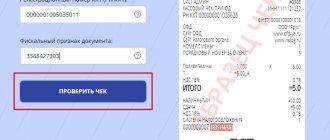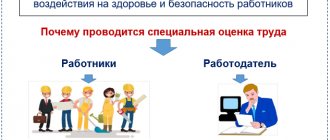The reliability of the counterparty is checked before concluding an agreement with him. This is necessary to minimize the risks of invalidation of the cooperation agreement. From the letter of the Federal Tax Service dated July 24, 2015 No. ED-4-2/ [email protected] The following criteria for assessing potential threats follow:
- the powers of the head of the counterparty company do not have documentary evidence;
- the actual address of the counterparty cannot be determined;
- there is no information about this legal entity in the Unified State Register of Legal Entities;
- Doubts arise regarding whether the counterparty has the ability to fulfill the terms of the contract.
When and why is a counterparty verification needed?
You need to check your counterparty in a wide variety of situations, for example, if:
- a transaction with him is carried out for the first time. When checking, you can detect suspicious aspects even before concluding a contract and protect yourself from possible problems in the future;
- the potential counterparty has recently registered. The new company does not pose any particular danger as a counterparty, but working with it can be fraught with a lot of different threats and risks;
- There are a lot of negative reviews about the counterparty. In some situations, negative information about a company may be spread by competitors or disgruntled employees. However, in most cases, it characterizes cooperation with the counterparty as unreliable and problematic;
- the counterparty works only on prepayment. In this case, the company may find itself paying the money under the contract, but not delivering the goods or performing the work.
Checking the counterparty reveals that the company does not fulfill its obligations under the contract, has problems with government agencies, is engaged in fraud or cash-out transactions, is at the stage of liquidation or bankruptcy, has debts on taxes and fees, is involved in legal proceedings, etc. The results obtained from assessing the activities of the counterparty will help protect the company from problems with the tax inspectorate, as well as loss of time and finances.
"ClassInform"
To check the reliability of a counterparty using the ClassInform website, you should:
- Go to the main page at classinform.ru and, scrolling down, select the “Counterparty verification” section.
- In the only editable field of the new page, enter the TIN of the organization or individual entrepreneur and click on the magnifying glass icon located on the right.
- If a company or individual entrepreneur has been registered with the tax authorities and continues to operate legally, the second column from the left of the table that opens will contain the inscription “Current”.
- If not, “Liquidated.”
The organization name in the same table is a link; By clicking on it, you can get more information - information is provided by the “For Honest Business” system. In particular, when checking a counterparty for reliability, you can take into account its conditional rating, indicated at the very top of the newly opened page.
Moving a little further, the user will find equally valuable information: whether the company is listed in the register of unscrupulous suppliers.
Note: find out what is included in the personal data of an individual.
Methods for checking counterparties
The company can check counterparties in several ways, which include the following:
- Request legally significant documents directly from the counterparty.
As a rule, these include the charter, OGRN and TIN, copies of which can be provided at the conclusion of the contract. In addition, it makes sense to ask for an extract from the Unified State Register of Legal Entities, as well as a certificate of no debt to the budget for taxes, contributions and fees.
Fig 1. Financial analysis of the counterparty’s enterprise in 1C: Counterparty
If a fairly large transaction is planned, you can also ask to provide information about the counterparty’s staffing levels, its property status, the cost of fixed assets, reputation in the business environment, and experience in the market. Such information will help confirm that the company has exercised due diligence and vetted its counterparty in advance. Please note that these documents are not required to be provided, but will allow you to confirm the seriousness of your intentions for the transaction.
The first group of documents makes it possible to establish how the counterparty generally conducts its activities and whether it has any serious problems in interacting with the state. The second group of documents is intended rather to ensure that the counterparty is able to fulfill its obligations under the concluded agreement.
Advice! When receiving an extract from the Unified State Register of Legal Entities from the counterparty itself, it is advisable to check the information on it posted on the Federal Tax Service website. Unscrupulous businessmen can falsify this document.
- Use the Federal Tax Service service.
When using online services of the Federal Tax Service, you can obtain the following information:
- extract from the Unified State Register of Legal Entities or Unified State Register of Individual Entrepreneurs;
- about liquidation or bankruptcy of an organization;
- on the exclusion of an inactive company;
- about the absence of disqualified persons in the executive body of the company;
- about the discrepancy between the legal and actual addresses of the counterparty.
Important! A discrepancy between the legal and actual addresses of the counterparty is not a reason for refusing the taxpayer to apply for tax deductions. However, such a discrepancy, as well as the widespread nature of the legal address, may become grounds for exclusion of the counterparty from the Unified State Register of Legal Entities.
- Check the file of arbitration cases.
This action will allow you to find out whether the counterparty is involved in any legal proceedings. This information makes it possible to determine how often the company is a plaintiff or defendant in court, as well as the nature of the claims.
- Find out if the counterparty is going through bankruptcy proceedings.
If the counterparty is at the stage of bankruptcy, then, naturally, there can be no talk of any cooperation with him.
- Check for a valid license.
If the activity is carried out by a counterparty without a valid license, then it is considered illegal, and the company itself is considered unscrupulous.
- Study the annual accounting (financial) statements of the counterparty.
This documentation can be obtained both from the counterparty itself and from Rosstat. Reporting will allow you to familiarize yourself with the company’s performance indicators and determine its financial capabilities to fulfill the terms of the contract.
How to check a counterparty correctly?
There is no universal solution: it all depends on the size of the company, its type of activity, the frequency of new counterparties and other factors. There are three verification schemes:
- independent, with the help of its employees
- outsourcing on an ongoing basis or outsourcing as needed
- engaging consultants to set up business processes within the company, develop individual regulations and other documents, as well as train employees.
On one's own
It is advisable to carry out verification of counterparties if there is a sufficient number of qualified personnel, the necessary software, developed regulations (which exist not just on paper from templates found somewhere, but actually work as part of the overall business process), and clearly organized document flow. Qualified personnel are needed to understand the essence of the audit, methodology, correctly record the results and communicate them to decision makers. As a rule, in large and some medium-sized companies this is done by security personnel with the assistance of lawyers.
Organized document flow and regulations are necessary for quick and high-quality implementation of pre-contractual and periodic verification of counterparties. As a rule, an audit begins with a request from the counterparty for a list of documents, including, in addition to statutory documents, information about debts to the budget, tax returns, staffing, a certificate of material and technical resources, and others. At the same time, the counterparty is checked using open sources of information (SPARK, Kontur-Focus, etc. do this quickly and efficiently, with a little analytics on the company being checked).
The use of modern software significantly reduces the time required to verify a counterparty and helps to quickly check the company’s connections, assess the current financial condition, court cases, and obtain information about government audits and their results. Reports from such software became one of the evidence of due diligence in court in a dispute with the tax authorities (for example, cases No. A49-1953/2017; A03-2471/2017).
Involvement of third parties
has many advantages: your employees are not burdened with side work, you receive a comprehensive report, including information that is not available in open sources (for example, about the presence of a counterparty on the “black” list of the Bank of Russia).
This option is convenient and cost-effective for small companies that need to check up to 15-20 counterparties within a month. But outsourcing will not be suitable for companies that must check several dozen counterparties a day: it will be unprofitable compared to setting up the process in the company itself and dedicating several full-time employees. The option of hiring consultants to set up a business process for verifying counterparties within the company
is suitable for large, medium and small organizations. This is a universal solution that allows you to set up work and optimize processes and costs for their implementation to obtain fast and high-quality results on an ongoing basis. As a rule, the involvement of consultants includes the individual development of internal company regulations (regulations, orders, etc.), training of responsible employees using real examples and analysis of all issues, testing the performance of the implemented mechanism and, if necessary, debugging it to increase efficiency.
What to pay special attention to when checking a counterparty
The following points can serve as special signals of a counterparty’s unreliability:
- the company refuses to provide copies of legally significant documentation, for example, the charter, TIN or OGRN;
- OKVED codes indicated in the extract from the Unified State Register of Legal Entities do not correspond to the actual activities of the counterparty;
- the number of OKVED codes exceeds a reasonable number, and at the same time they are quite diverse and relate to completely different areas of activity;
- there is information about the unreliability of the legal address or information about the director;
- the organization has no employees;
- the counterparty is often involved in legal proceedings;
- operations are carried out that are atypical for the activities of the enterprise;
- the company submits zero or loss-making reports;
- the counterparty has a serious debt on taxes and fees.
Important! If already at the initial stage there are serious doubts about the reliability of the counterparty, it makes sense to refuse to cooperate with him, even if he offers good conditions and prospects.
What is due diligence
The legislation of the Russian Federation does not provide for a clear definition of the concept of due diligence, however, this term was put into practice by Resolution of the Plenum of the Supreme Arbitration Court of the Russian Federation dated October 12, 2006 No. 53. Based on it, the judicial authorities and the tax inspectorate began to use this concept quite actively.
The essence of due diligence is that when choosing a counterparty, a company must take specific actions to collect and analyze information about the partner. This point is considered necessary before concluding a cooperation agreement.
Due diligence is often considered when challenging the validity of the use of VAT deductions and expenses in determining the taxable base for income tax. At the same time, it is established whether the company had an unjustified tax benefit when carrying out transactions.
An unjustified tax benefit presupposes that:
- the transaction was not actually carried out;
- the company and its partner are interdependent persons;
- the counterparty in fact realizes that his actions will result in the receipt of an unjustified tax benefit.
If the tax inspectorate can prove that the transaction was carried out only formally and resulted in an understatement of the amount of income tax, then it will not take the expenses into account and will charge additional tax.
Due Diligence Features:
- if the taxpayer has not exercised due diligence, this may result in cooperation with an unscrupulous counterparty;
- due diligence is just one of the methods of checking a potential partner, used by the taxpayer in conjunction with other methods of checking business entities;
- due diligence is closely related to unjustified tax benefits, because its failure to manifest itself may cause the appearance of a second one;
- when conducting proceedings, the judicial authorities do not take into account that the concept of due diligence as such is not enshrined in the legislation of the Russian Federation;
- The legislation does not establish specific criteria for assessing failure to exercise due diligence.
Electronic services for verifying a counterparty
To check a counterparty for reliability and integrity, you can use the following services:
- order an extract from the Unified State Register of Legal Entities on the Federal Tax Service website;
- order an extract from the Unified State Register of Real Estate on the Rosreestr website;
- check information through the Transparent Business service;
- check the legal address for mass distribution;
- check the director for disqualification;
- find out the debt on taxes and fees or reporting;
- check inclusion in the register of small and medium-sized businesses;
- find out about bankruptcy through the Federal Register of Bankruptcy Information;
- check for exclusion from the Unified State Register of Legal Entities in the journal “Bulletin of State Registration”;
- search in the bailiff database;
- check in the file of arbitration cases;
- determine the validity of the license on the websites of licensing authorities;
- check the validity of the manager’s passport on the website of the Ministry of Internal Affairs;
- check the validity of the power of attorney on the website of the Federal Notary Chamber;
- check the integrity of the counterparty on the government procurement website.
As you can see, checking a counterparty is a very labor-intensive task. You have to check more than 10 services. But, you can make everything much simpler!
1SPARK Risks is a service for assessing the reliability and monitoring of counterparties in 1C to make informed decisions on cooperation and reducing tax risks. With just one program you can check the counterparty in all sources of information:
Fig 2. Main sources of information 1SPARK Risks
"Contour.Focus"
To check a counterparty on the Kontur.Focus website you need to:
- Go to the web resource at kontur.ru, then follow the link “Checking counterparties” in the “Services for accounting and business” section.
- In a new line, without agreeing to the offer to “try for free,” click on the screenshot located directly below it. Clicking on the “Focus” link to the left of the image gives a similar result.
- Scroll down the page that opens and find the “Try it yourself” section; In the address bar located directly below the title, you need to enter the counterparty’s TIN, and then use the “Find” button.
- If the organization is registered and continues to operate legally, at the top of the new window, in addition to statistical codes and other useful information, the green inscription “Current Enterprise” will appear.
- If not, a red inscription will appear there, containing the date of deregistration or cancellation of registration.
Important: some of the information in Kontur.Focus is available in paid mode, so instead of human text, a user who is not registered in the system will see a number of dots - however, the “demo version” of the search will be enough to check the reliability of the counterparty.
It wouldn’t hurt to familiarize yourself with the judicial history of your future business partner. It is presented in two sections - “Arbitration cases” (defendant/plaintiff/other) and “Enforcement proceedings”. Most of the information is hidden from the unregistered user, but it is still possible to find out the total number of cases, as well as the amount of claims, using the appropriate links.
Note: find out how to obtain information about tax debt using your TIN.
Search and verification of the reliability of the counterparty
In practice, most entrepreneurs, especially beginners, have many questions regarding the process of searching and checking counterparties: what tools should be used, are there free opportunities for this, what information needs to be analyzed, etc. Moreover, there are no standard rules and criteria for such verification . All actions that need to be taken are usually developed by companies themselves during the analysis process, based on a risk assessment.
According to Andrey Khrykin, project manager at Focus.Forum, the process of verifying counterparties rests on three pillars:
- Trustworthiness - the company's intentions and its relationship with the government and other business partners;
- assessment - identifying the main assessment criteria and objective information;
- knowledge - understanding what information is worth considering and what is not.
Verifying a counterparty is a comprehensive and not one-time job, as many may think. But it is necessary, because the company’s money and reputation are at stake. It is not for nothing that the tax authorities warn that responsibility for choosing a counterparty lies entirely with the company.
Therefore, it should be interested in assessing the risks and tax consequences that may arise as a result of cooperation with dubious counterparties.
If the tax office has claims against one of your counterparties, it is likely that you will unwittingly find yourself in trouble.
In the Resolution of the Plenum of the Supreme Arbitration Court of the Russian Federation dated October 12, 2006.
No. 53 lists all the cases when a tax benefit is recognized as unjustified, but in general they all boil down to two theses: a tax benefit is recognized as unjustified if the taxpayer acted without due diligence, since he should have known about the violations committed by the counterparty; if the taxpayer, his interdependent or affiliated persons carry out transactions related to tax benefits, mainly with counterparties who do not fulfill tax obligations (clause
In addition to tax risks, when working with a counterparty, financial risks may also arise: missed delivery deadlines, delivery of low-quality goods, etc.
It’s good if the problem can be resolved through negotiations, and the supplier is ready to replace the defective product or provide a discount on the next batch of goods in case of delays in delivery.
To see the “true face” of a counterparty, you need to take several steps to ensure that you are dealing with a valid legal entity and that your counterparty does not look like a shell company.
- a copy of the organization's charter;
- a copy of the state registration certificate;
- a copy of the certificate of registration with the tax authority;
- accounting records for the year preceding the year of the transaction;
- a copy of the passport of the head of the organization.
On the Federal Tax Service website, entrepreneurs can use several online services for free to collect important information about the counterparty.
The simplest thing you can do is to search for a counterparty using the TIN on the Federal Tax Service website.
To do this, you need to select the “Legal Entity” tab and enter the OGRN or TIN of the legal entity or indicate the name and (optionally) region of location.
On the Federal Tax Service website you can find other information about the counterparty for free by name, address and other criteria.
InformationSource
← Back to home
Searching for partners to enter into business agreements necessarily involves studying the history of the company. Responsibility for the selection of information lies with authorized representatives of the company, therefore checking counterparties for reliability is an integral stage of pre-negotiation practice.
On our website you will receive all the information on a specific request in a few minutes, and this will help you draw a conclusion about the feasibility of partnership.
The resource allows you to find out:
- whether the company has been registered;
- isn't it ;
- whether its representatives provided correct data;
- does the organization pay taxes;
- whether the counterparty has debts;
- whether the legal entity participated in legal proceedings;
- whether the party fulfills the terms of the contracts in good faith;
- Is the company bankrupt?
The official website for checking counterparties has a wide database of organizations. You can find a company of any form of ownership and type of activity. The absence of the requested organization on the resource is a serious reason to think about terminating cooperation.
To conduct a check, you do not need to search for information on different resources, wasting time. Just open the search bar and enter a query for the company you are interested in.
We have collected all the data that is often of interest to users:
- address and contact information;
- details of managers and officials;
- internal structure of the organization;
- presence of subsidiaries;
- lawsuits and proceedings;
- financial statements;
- Internal Revenue Service reports, other.
The counterparty is searched and verified for good faith using the company name, manager’s name, INN, OGRN and other data.
TIN is an individual number assigned to a taxpayer upon registration. Any legally operating company is required to have a TIN.
Checking the reliability of the counterparty using the TIN or OGRN is the best option. If you only have the company name or owner's full name, it is important to provide this information as accurately as possible. It is possible to issue several companies upon request, due to similar company names or names of managers.
What does our resource provide?
We operate on an evidence-based basis, providing users with accurate information.
Advantages of checking a counterparty company through the Reputation resource:
- instant search;
- minimal availability of initial data;
- full package of documents;
- some information is freely available;
- small one-time fee for additional information.
Checking the counterparty of a legal entity will provide an opportunity to evaluate the partner based on its activities and make decisions on the rationality of continuing cooperation. To obtain publicly available information, simply enter a query in the search bar; to access paid content, you must register.
Use our service and manage information wisely!
How to independently check the reliability of a counterparty?
It is necessary to check the reliability of the counterparty before concluding an agreement, since currently there are enough companies that are unable to fulfill their obligations. Currently, there are many opportunities that will help you find out the history of a potential partner’s activities, and thereby eliminate the risks when signing a contract to a minimum.
Before signing a contract, researching information about a potential partner is a priority. In addition, this procedure does not take much time. Things can get much worse if conflict situations arise.
- The emergence of problems with the Federal Tax Service, which refuses to recognize the legality of applying a zero rate for certain types of taxes. Or refusing to deduct VAT. Which may entail additional costs.
- Possible arrest of cargo at the border.
- Imaginary transactions may arouse suspicion among a banking institution, which has the right to contact the appropriate services to verify the financial status of the client’s activities.
- When an organization cooperates with foreign partners, its activities may be controlled by currency control authorities.
- Request an extract from the Unified State Register of Legal Entities from the tax service, and also find out whether the potential partner has a debt on tax contributions. If another participant provided it personally, then it is better to check its authenticity on the tax service website. The dishonesty of a partner can be determined in the presence of the following circumstances:
- The legal address where the person is registered also belongs to other organizations;
- The existence of any types of debt;
- The head of the company simultaneously performs the duties of an accountant;
- The counterparty as a legal entity was created before signing the contract.
If violations of the requirements of current legislation are detected, the company may be held liable for administrative offenses and even criminal liability.
Therefore, when conducting an audit, it is necessary to pay close attention to the legal status of the parties to the transaction and their financial situation.
If they have debts or imposed penalties, the concluded agreement may be declared invalid.
- Company bankruptcy;
- About her status as a defaulter;
- The use of her address by numerous shell companies.
Today, basic information can be found online for free on government service portals. To do this, you need to know the TIN of the subject of interest. This information is provided free of charge.
Our lawyers know the answer to your question
If you want to find out how to solve your particular problem, then ask our duty lawyer online. It's fast, convenient and free!
or by phone:
- Moscow and region: 7-499-938-54-25
- St. Petersburg and region: 7-812-467-37-54
- Federal: 7-800-350-84-02
Before signing the contract, you must make sure that:
- The person signing the document has the right to do so. To do this, you need to request a valid power of attorney or a decision of the founders to appoint a director;
- The company does not participate in the procedure for declaring it insolvent or enforcement proceedings are not carried out against it. When a contract is concluded as a result of an auction, it is necessary to explore the possibility of including the winning person in the register of unscrupulous contractors;
- An individual is registered as an entrepreneur. You can check this fact on the Federal Tax Service Inspectorate portal using your Taxpayer Identification Number (TIN) for free by entering the necessary parameters: full name and location. The search system will provide information about the registration and termination of the work of an individual entrepreneur, types of activities of the person, details of the certificate;
- A foreign organization is officially registered in its country. This can be checked in the registry of the relevant state by sending your request there. Foreign databases contain more detailed information than the Russian one;
- The counterparty carries out actual activities and has the property to provide guarantees for the fulfillment of contractual obligations by checking information on certificates or declarations of conformity in the Unified National Register of Accreditation;
- A potential partner is real and the possibility of a risk of non-fulfillment of obligations under a transaction can be checked by requesting information about his business image from his partners, or their feedback.
It should be noted that active research into the business reputation of the applicant and his actual ability to perform duties indicates reasonable diligence. By the way, such a study of information will complement the control over the legal capacity of the applicant.









